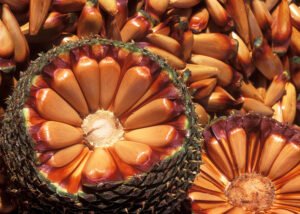Changes in the Brazilian agri-food system could save 427 billion dollars annually

A report from the Food and Agriculture Organization of the United Nations (FAO) indicates that the hidden cost of global agri-food systems is 12 trillion dollars a year.
This value refers to expenses and benefits related to the production, distribution and consumption of food.
In economics, hidden costs, also called invisible, are not reflected in market prices. For this reason, the UN agency’s study specifies the expenses generated by agri-food systems at three levels: environmental, social and health.
Reduction in Brazil
In the Brazilian case, the transformation of agricultural production processes could avoid costs of up to 427 billion dollars annually. The FAO representative in Brazil, Jorge Meza, reports how these expenses are related to agri-food systems.
“The hidden costs are associated with air, water and soil contamination, individual or public health problems, generated by the quality of food or, also, with the reduction in the income-generating capacity of people who are in malnutrition situation,” he stated. states.
Expenditures on agri-food systems
Much of the Brazilian expenses generated in agri-food production systems come from the environmental dimension, totaling approximately 294 billion dollars annually, as a result of the emission and flow of nitrogen, polluting gases and changes in land management.
Unbalanced diets, related to heart disease and diabetes, cause costs of 130 billion dollars, while social aspects, such as malnutrition and poverty among rural producers, cause costs of 3 billion dollars.
Food insufficiency is not considered a critical problem among rural producers, since it affects a small proportion of farm workers. Even so, the situation requires seriousness and strategies on the part of government managers.
“One of the public policies is to support family farmers with productive inputs, knowledge and credit so that they can develop their activity and reach levels of knowledge that satisfy their basic diet,” says Meza.
Analysis in 156 countries
The FAO study analyzed 156 countries and mapped public policies that, in their development, considered the invisible costs of agri-food systems.
In Brazil, the Forest Code and the Food Acquisition Program (PAA) were cited as model initiatives for a more sustainable global future. The PAA resulted in a 13% increase in the value of production of family farmers who participated in the initiative, also contributing to the lives of millions of Brazilian students.
“This program also had an impact on reducing hidden health costs, since it constituted an important source of healthy food for food insecure children and demonstrated that the program increases the frequency of school attendance,” says the FAO representative in Brazil. .




